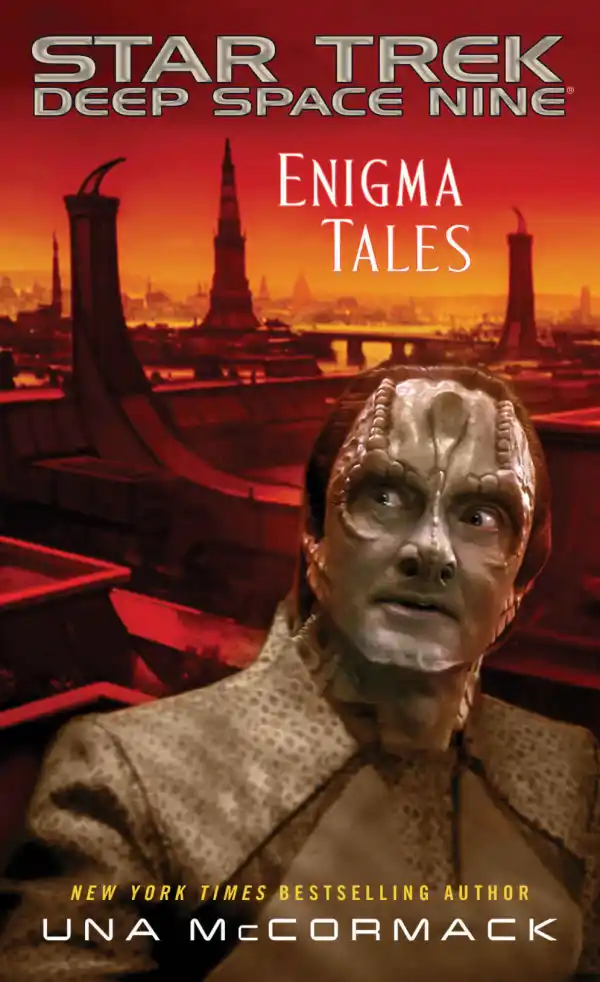Review: Star Trek Deep Space Nine: Enigma Tales

I picked up Star Trek Deep Space Nine: Enigma Tales on a whim after discovering it on a spin rack full of paperbacks at the Sadler Travel Plaza in Dunn, N.C. I don't know what was more surprising -- finding SF/F at a gas station in 2018 or learning that there are still new Deep Space Nine novels coming out.
The book has an unlikely set of protagonists from the Trek TV shows: Elim Garak, the Cardassian tailor and former spy on ST:DS9; Katherine Pulaski, the chief medical officer on ST:TNG; and Natima Lang, a Cardassian professor who appeared in one DS9 episode. Garak has ascended to lead a post-war Cardassia as its castellan at a period when the newly democratic society begins to reconcile its history of war crimes. Lang is a former dissident and inspirational figure not connected to those crimes -- or so everyone believes. Pulaski arrives to receive an award and inserts herself in the middle of events.
The plot of the book is handled in an unorthodox way by author Una McCormack. In a 350-page book, the first 100 pages don't set the plot into motion and the last 50 are like an epilogue. The main antagonist is never given a name, has no dialogue and appears in only one scene. As a consequence I found the plot too thin and ultimately unsatisfying.
But I enjoyed the book anyway because of the characters and setting. Cardassians were one of the best things about DS9 and their society is deftly explored by McCormack. She makes good use of Pulaski, a polarizing figure to TNG fans back in the '80s, by celebrating her prickly personality as assertiveness and quick wit. Garak is the main draw, wrestling with his sordid past and processing his grief over his friend Julian Bashir, the doctor from Deep Space Nine who is in a catatonic state which the novel doesn't explain. Chapters of the novel are bookended by unsent letters Garak writes to Bashir about Cardassia. They express such a deep wellspring of emotion they read as yearningly romantic.
McCormack's author bio on Amazon says that she was writing fan fiction when approached by the publisher to pitch Star Trek books. I can see that, given the moments in the book where she is selling a pretty adoring take on a character and the setting. I was persuaded to her side most of the time in that regard, but I wonder whether the book would have been stronger if she had a tougher view of Cardassia.
Add a Comment
All comments are moderated before publication. These HTML tags are permitted: <p>, <b>, <i>, <a>, and <blockquote>. This site is protected by reCAPTCHA (for which the Google Privacy Policy and Terms of Service apply).

